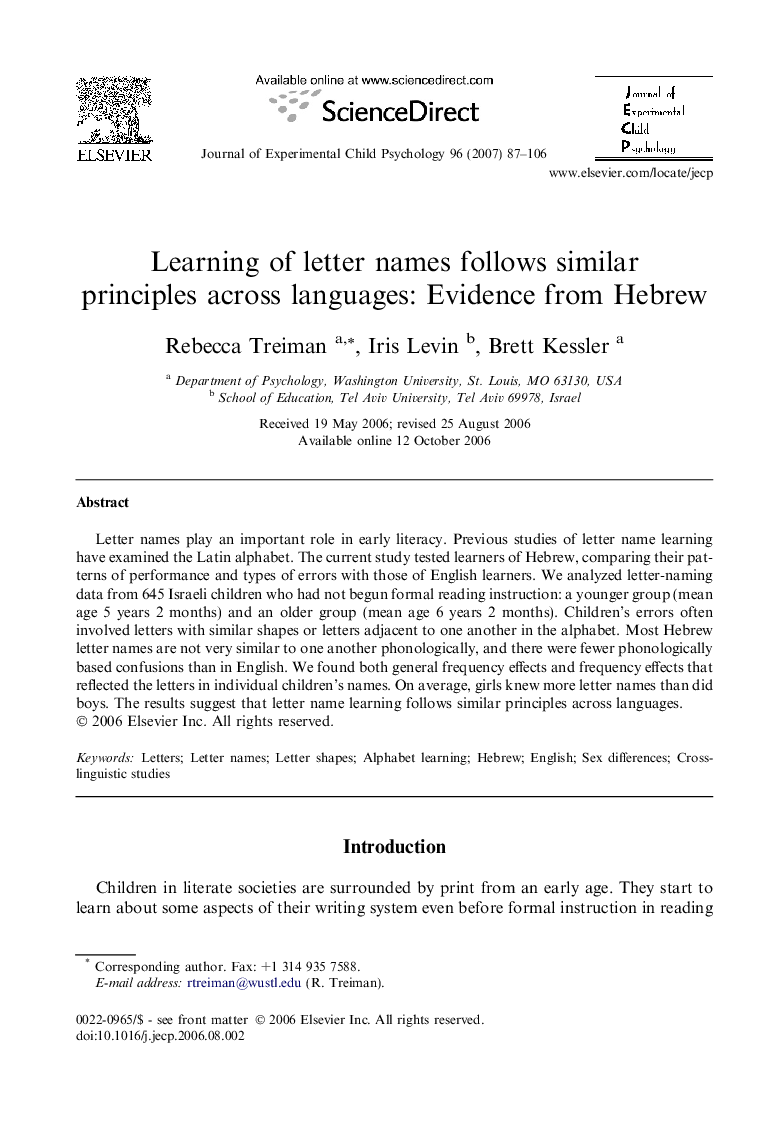| Article ID | Journal | Published Year | Pages | File Type |
|---|---|---|---|---|
| 918844 | Journal of Experimental Child Psychology | 2007 | 20 Pages |
Letter names play an important role in early literacy. Previous studies of letter name learning have examined the Latin alphabet. The current study tested learners of Hebrew, comparing their patterns of performance and types of errors with those of English learners. We analyzed letter-naming data from 645 Israeli children who had not begun formal reading instruction: a younger group (mean age 5 years 2 months) and an older group (mean age 6 years 2 months). Children’s errors often involved letters with similar shapes or letters adjacent to one another in the alphabet. Most Hebrew letter names are not very similar to one another phonologically, and there were fewer phonologically based confusions than in English. We found both general frequency effects and frequency effects that reflected the letters in individual children’s names. On average, girls knew more letter names than did boys. The results suggest that letter name learning follows similar principles across languages.
